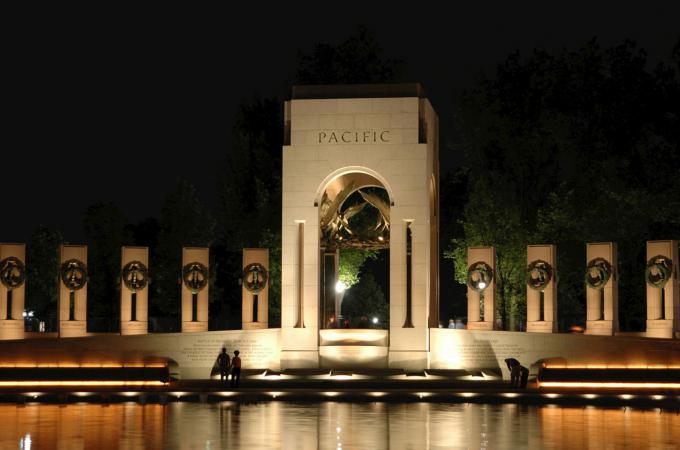Not just history
I have a theory. If you aren't old enough to remember something -- and you don't know someone who is -- you usually end up mentally tossing it into the wide and deep pile of events we call history. And once something lands in that pile, it no longer matters where or when it occurred. The past simply becomes the past; there's no longer any perceivable difference between Abraham Lincoln and Henry the VIII, no clear distinction between the Punic Wars and World War I. It's all the same to us because it's all distant from us.
This week, we observed the 75th anniversary of the end of World War II. Seventy-five years is a long time; actually, it's a lifetime. My mom was a young child in the 1940s, but to me, the war was very real. Many of my peers had family members who had served in the military, and several of the elderly residents of the Jewish nursing home where I volunteered as a teen still had their concentration camp prisoner numbers tattooed on their forearms. But now, as the last of the Greatest Generation pass from this life, more and more of the events that loomed large in 20th-century history are being relegated to that indistinguishable pile of events. It isn't personal anymore.
Events to commemorate the end of World War II have most certainly suffered from the COVID-19 pandemic, just as everything else has. But we would do well to remember, especially while we face our own multi-front struggles, that it wasn't so long ago that the entire world was embroiled in conflict. Massive armies faced each other in battle from the deserts of North Africa to the lush islands of the South Pacific. Forces took to the sea in ships, to the skies in planes, to hills and beaches and jungles by tanks and jeeps, and even on foot. At home in the U.S., women worked to support the war effort and children collected aluminum from gum wrappers. Young men volunteered to serve their country and to liberate the world from fascist dictators and regimes. In the process, between 70 and 85 million people -- three percent of the world's population at the time -- died.
Thankfully, wars do not last forever. In fact, the hostilities that began with Nazi expansionism and Imperial Japanese aggression ended on Sept. 2, 1945, with a few signatures on a printed agreement to surrender. And while there were countless acts of heroism in the fight, the most heroic act was the choice to abandon slaughter and destruction on an unprecedented scale and reestablish peace. That same kind of heroism is available to every generation.
There is no treaty we can sign to end our current crises, and the mobilization we must sustain to face them will continue to demand a great deal from all of us for some time. But God is still on the throne, just as he was when Japan surrendered to the Allies, when the extermination camps across Europe were liberated, when the guns were collected and the task of rebuilding began. The 20th-century world ultimately passed through the fires of total war. And we, too, will find our way to the other side of a worldwide pandemic, a devastated economy, and intense political strife.
History is a wonderful teacher. We can learn as much from past virtues as we can from past mistakes and sins. The grace that accompanied those whose lives were shaped by World War II is still ours for the asking. Honor, valor, and self-sacrifice can be the hallmarks of any era. They become just that when enough of us are determined to live the ideals we admire. Those are the things most worth remembering about what happened 75 years ago, the things we ought to hold on to in memory and not just history.
- Jaymie Stuart Wolfe is a Catholic convert, wife, and mother of eight. Inspired by the spirituality of St. Francis de Sales, she is an author, speaker, and musician, and serves as a senior editor at Ave Maria Press. Find Jaymie on Facebook or follow her on Twitter @YouFeedThem.



















